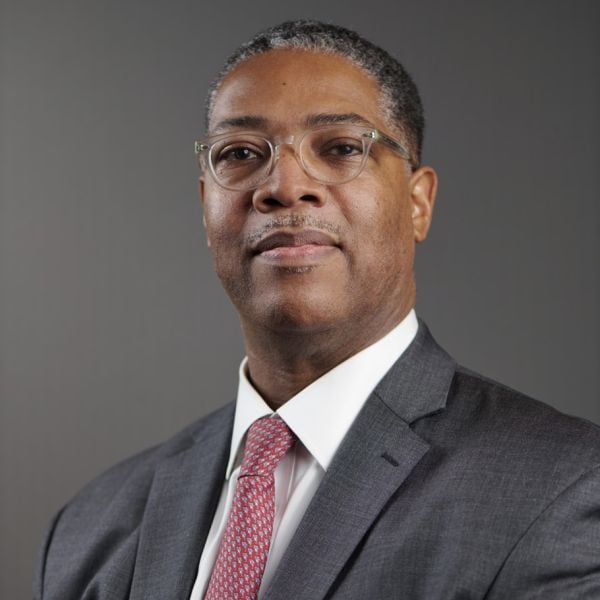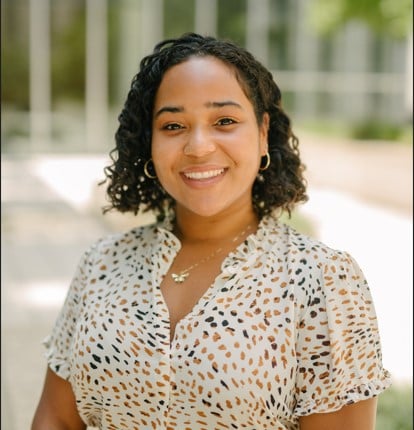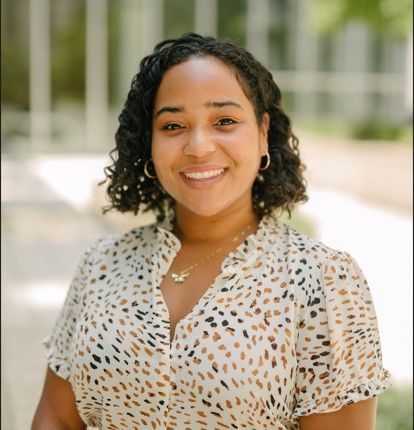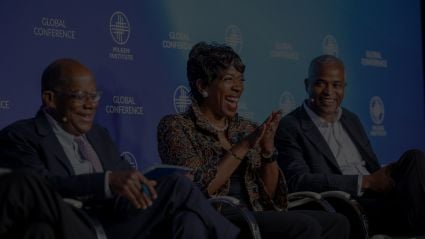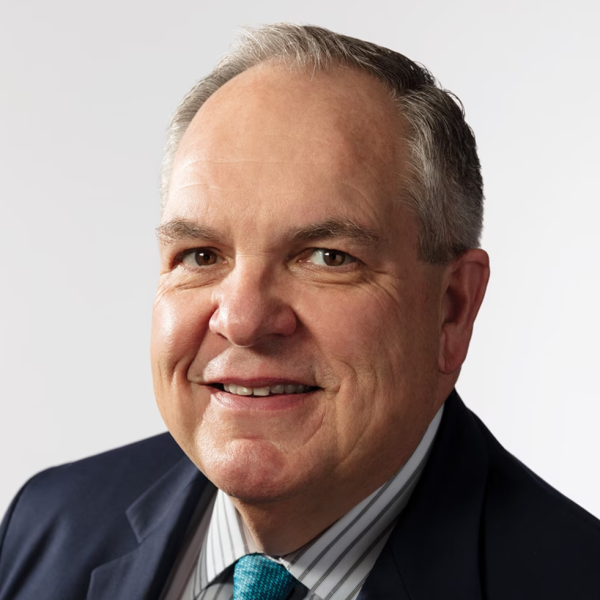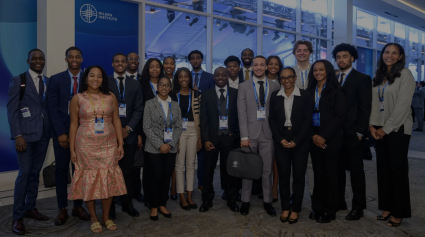For 2024, the Inclusive Capitalism (ICAP) team continues to commit to the crucial change work needed to lead the industry in a more inclusive direction. Through programs like the Milken Institute HBCU Strategic Initiative and Fellows program, reports like our newly released Seven Strategies for Specific Action in Asset Management, and partnerships like with our Executive Council members, the Inclusive Capitalism program will press forward in building an inclusive financial services industry for all.
In This Newsletter
ICAP In Action
The Path to Inclusive Capitalism White Paper Series Releases Its Companion Piece
Research shows that diversifying talent is proven to influence firm performance positively. What we’ve consistently seen is a lack of direction on how to go about diversifying the industry and building a financial ecosystem with inclusion at the center. Following our first report (The Path to Inclusive Capitalism: An Asset Owner Guide for Investment Portfolios), which laid out the four core pillars for progressing diversity, equity, and inclusion in the industry, this companion piece aims to provide that direction.
The recent white paper, Inclusive Capitalism: Seven Strategies for Specific Action in Asset Management, serves as a guidebook for steps we encourage the asset management industry to execute to enhance efficiency and value-creation opportunities. In an interview with PlanAdvisor Digital, ICAP Director Troy Duffie stated that the seven steps are “proposed actions that are aimed to increase diversity, capture unrealized value, and mitigate long-term risks within the asset management sector. These seven specific actions give [firms] ways they can do this within their firms with actionable steps they can enact immediately.”
The benefit of these specific actions is in their variety—one size does not fit all. While talking with Emerging Manager Monthly, Duffie noted, "An organization may already have a robust talent pipeline that includes HBCUs, Hispanic-serving institutions, tribal universities, et cetera, but may not have a robust way of tracking data and reporting metrics. Another may not have an emerging manager or diverse managers program. We provided as many examples on each step as we could and allow organizations to choose where they want to start.” This customizable approach was also noted as a “practical and reliable framework” that urges firms to send intentional signals to the market strengthening diversity, equity, and inclusion by impact wealth.
The Milken Institute HBCU Fellows Program Kicks Off the 2024 Cohort
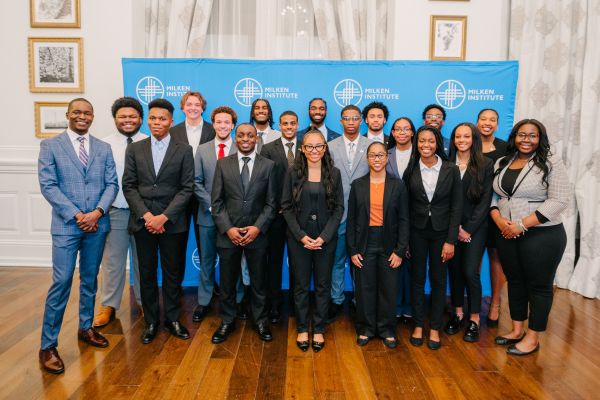
The 2024 Milken Institute HBCU Fellows cohort during the kick-off reception
We celebrated the Milken Institute HBCU Strategic Initiative and Fellows program 2024 cohort in January during a three-day kickoff retreat and reception. Designed to bridge the gap between academia and industry, the program aims to empower students from Historically Black Colleges and Universities (HBCUs) by providing opportunities for professional development, networking, and personal growth.
HBCUs are a hub of black talent and potential—while only accounting for 3 percent of all four-year nonprofit colleges and universities, they enroll 10 percent of all African American students and are responsible for nearly 20 percent of all science, technology, engineering, and mathematics (STEM) bachelor’s degrees awarded to Black graduates. By providing pathways for these students to enter the financial services industry, the HBCU Fellows program is part of the Milken Institute's commitment to broadening the talent pipeline while achieving diversity at all levels of the asset management sector.
The second cohort comprises 20 students from twelve institutions including Spelman College, Central State University, North Carolina A&T, and Howard University, and is already making waves. Congressman French Hill, vice chair of the US House Committee on Financial Services and co-chair of the HBCU Congressional Caucus, acknowledged the program during his remarks on the House Floor in late January, noting the "20 impressive students" and going on to highlight Philander Smith University as a newly represented HBCU in the program.
The HBCU Strategic Initiative and Fellows Program Receives $1 Million
In early February, the T.D. Jakes Foundation (TDJF) in collaboration with Wells Fargo awarded a $1 million grant to the Milken Institute HBCU Strategic Initiative and Fellows program. The T.D. Jakes Foundation and Wells Fargo are creating opportunities for historically underrepresented communities through the philanthropic investment of $9 million in grants to 16 community-based organizations across the United States. The funding aims to “support the creation of financial wellness and innovation centers, help organizations convert underutilized land into affordable homes, and drive impactful change for college students,” TDJF announced in a recent press release.
ICAP Attends a 10,000 Communities Initiative’s Investment Strategy Summit
Troy Duffie joined the MI Public Finance program (PFIN) for its Resilient Michigan Investment Strategy Summit in Detroit this February. The summit falls under PFIN’s 10,000 Communities initiative, launched by the Milken Institute to help accelerate and advance critical community infrastructure projects by providing access to resources for urban and rural American communities that need them most. Duffie moderated a dynamic panel featuring Charisse Conanan Johnson, Co-CEO of Next Street; Nia Batts, general partner at Union Heritage Ventures; Jacob Covidae, principal at Rocky Mountain Institute; and Aaron Seybert, managing director of social practice at the Kresge Foundation. Panelists discussed the role investors, philanthropists, think tanks, and bridge builders have in catalyzing capital across American communities.
More broadly, the summit convened federal, state, philanthropic, municipal bond, impact, institutional, and international investors seeking US opportunities with technical assistance experts and community leaders to build a shovel-worthy and investment-ready project pipeline in Michigan and the surrounding region for the next decade. Among the outstanding speakers of the day were Michigan Lieutenant Governor Garlin Gilchrist II and Deputy Secretary Don Graves from the Department of Commerce.
Trending Now
Women in Finance: Mentorship as a Pathway to Retention
For the last 20 years, the percentage of female fund managers around the globe has consistently hovered around 12 percent, according to the 2023 CityWire Alpha Female Report. The asset management industry is well known for placing significant value on apprenticeship to master the craft of investing. Retention is as necessary as diversifying the talent pipeline to create a more diverse workforce. This is where mentorship and benchmarking can provide tangible solutions. Inclusive Capitalism executive council member and President and CEO of Girls Who Invest Katherine Jollon Colsher recently highlighted this issue in an interview with Investment News. Girls Who Invest serves over 500 program graduates each year and places more than 200 scholars in front-line investing internships. However, Colsher also counts on the program's 2,500 alums to continue paving the way through support and mentorship. “They give back by paying it forward to college students and helping encourage them to apply to Girls Who Invest and take our programming. They give back through peer mentorship circles where they advise each other on anything from compensation to whether or not to jump ship,” she said.
HBCUs Are Calling for Increased Endowment Support
Endowments are crucial for the sustainability and well-being of economic institutions. They can contribute to lower tuition levels for students and are an essential source of revenue, according to the American Council on Education. However, the gap between HBCUs and predominately White institutions is $100 to $1, according to HBCU Money. Without a strong endowment, institutions have fewer resources and less opportunity to accelerate growth at the same scale and pace as other institutions. UNCF partnered with PGIM on a study to begin outlining a plan to strengthen HBCU endowments. “Using this study as a foundation, UNCF is leading the charge to forge a new era in which HBCUs can cultivate the endowments required to accelerate their work and impact,” said Ed Smith-Lewis, vice president for UNCF's strategic partnerships and institutional programs. The report, Investing in Change: A Call to Action for Strengthening Private HBCU Endowments, outlines the constraints HBCUs face in strengthening their endowments.
A Policy Agenda for Advancing Black Economic Mobility
The Black Economic Alliance Foundation engaged with leading policy experts and organizations to produce a policy agenda on five areas critical to advancing Black work, wages, and wealth: affordable housing, entrepreneurship, jobs and workforce development, tax reform, and voting rights. The agenda illustrates how improving Black work, wages, and wealth requires leaders across the public, private, and social sectors to collaborate to reshape the markets, systems, and institutions that define our economy.

